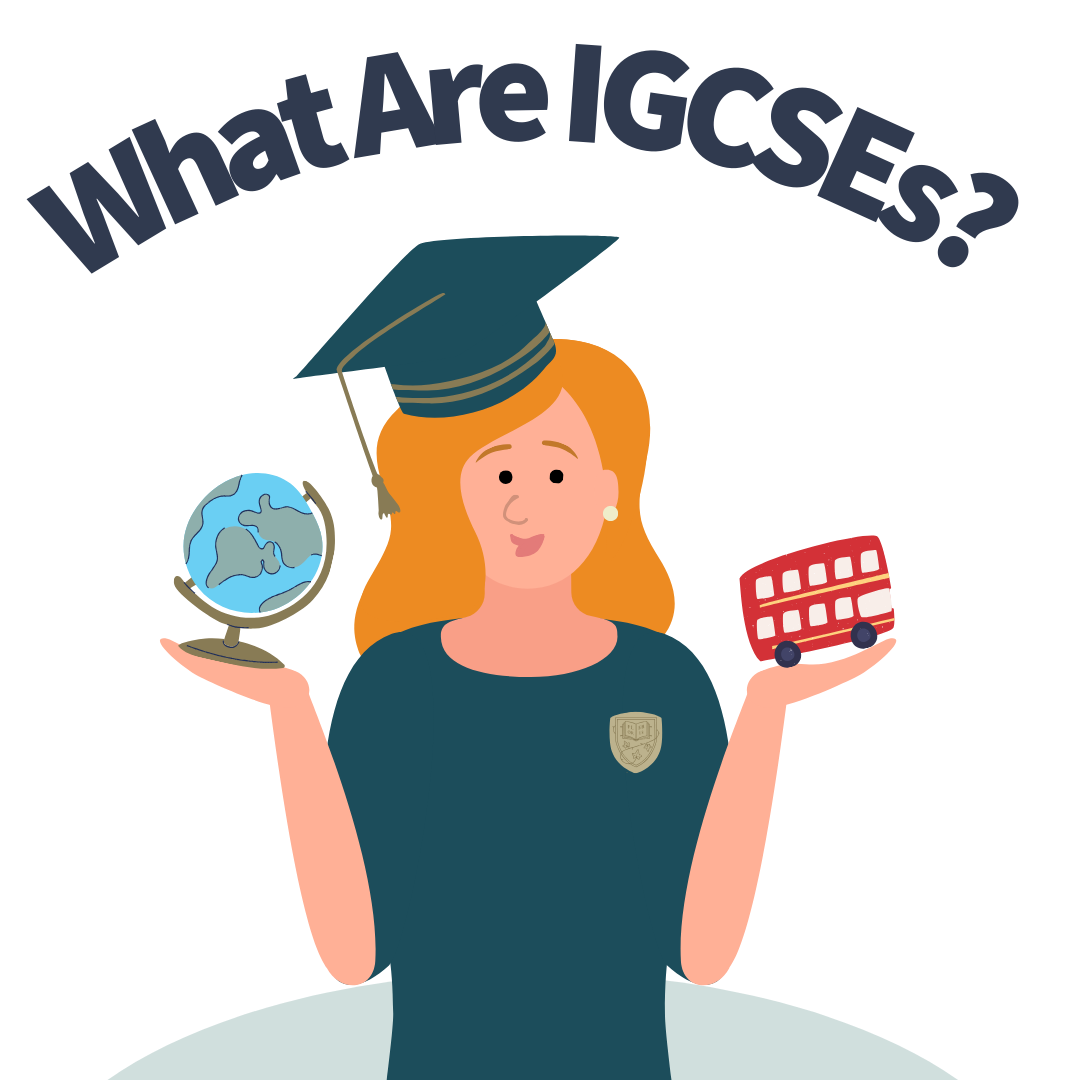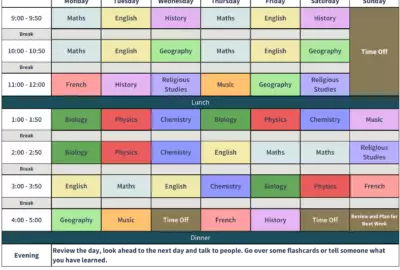Expert Insights
What are IGCSEs?
Published 28th June 2024 by Alastair

What is iGCSE?
Navigating the world of secondary education qualifications can be challenging, especially for international students or parents looking to transfer their child's education to the UK. One qualification that international parents may have heard of is the IGCSE. But what exactly is the IGCSE, and why might students choose it?
Our team of top tutors have written an article exploring its structure, and how it differs from the more traditional GCSE curriculum. We’ll also share insights on how Ivy Education’s expertise can help students excel in their IGCSE exams, providing a comprehensive understanding of this globally recognised qualification.
Introduced by the University of Cambridge International Examinations in 1988, the International General Certificate of Secondary Education (IGCSE) has grown to become a leading international qualification recognised by schools, universities, and employers worldwide. It is designed to be academically rigorous and prepares students for further education, such as A Levels and the International Baccalaureate (IB) Diploma.
IGCSEs are accredited by Cambridge (Cambridge International Examinations) or Edexcel (Pearson Edexcel) exam boards, and differ slightly in their syllabuses. For more resources on the two exam boards, visit their websites:
For a comprehensive list of IGCSE courses, you can refer to the Cambridge International website, or on the Pearson Edexcel Website, depending on the exam board you are taking.
Many students and schools prefer the IGCSE due to its flexibility and global acceptance. For a deeper dive into these differences, check out our blog on the differences between GCSEs and IGCSEs.
The IGCSE is recognised by universities and employers worldwide, making it a valuable qualification for students with global aspirations. It is especially popular among international schools and expatriate communities, providing a consistent and rigorous standard of education.
In the UK, IGCSEs are widely accepted as equivalent to the General Certificate of Secondary Education (GCSE). They are often prerequisites for A-levels or the International Baccalaureate (IB), which are in turn required for university admission.
While the US education system does not have a direct equivalent to the IGCSE, many universities recognise and value the qualification. High grades in IGCSE subjects can enhance a student's application. Other countries and regions that recognise IGCSEs include Canada, Australia, and many parts of Europe and Asia.

IGCSEs lay a solid foundation for advanced studies such as A Levels, the IB Diploma, and other qualifications. Universities value the skills developed through the IGCSE programme, including analytical thinking, problem-solving, and effective communication. Widely recognised and aligned with international standards, the IGCSE reliably indicates a candidate’s academic abilities and knowledge base, which is why international schools around the globe often adopt the IGCSE curriculum for its quality and rigour.
3.3One of the standout features of the IGCSE is its flexibility. With a wide range of subjects to choose from, students can tailor their subject choices to suit their interests and career aspirations. This flexibility also accommodates different learning styles and paces, making it an inclusive option for diverse student needs.
A well-structured study plan is crucial for success in IGCSE exams. Start by setting clear goals, breaking down the syllabus into manageable chunks, and allocating time for each subject. Regular review and practice are key to retaining information and building confidence.
If you would like more guidance on preparing for your IGCSEs, we have written two further guides to help you with your academic journey:
The Ultimate Guide to GCSE Revision - Everything you need to know to revise for the GCSEs. This is entirely applicable to IGCSEs.
Free GCSE Revision Timetable Template - A guide to help you design your own GCSE or IGCSE revision timetable.

IGCSE assessments can include written exams, coursework, oral tests, and practicals. Familiarise yourself with the exam format for each subject, and practice with past papers and examiner reports to understand what is expected:
Most IGCSE subjects primarily use written exams to assess students. These exams typically consist of multiple-choice, short answers, and essay-style questions. For example, in IGCSE Maths, students sit for multiple written papers covering topics like algebra, geometry, and statistics.
Coursework, or controlled assessments, is included in some IGCSE subjects to evaluate students' understanding and application of knowledge over time. For instance, in IGCSE History, students might complete a coursework project that involves researching and writing about a historical event or period.
Oral tests are used in language subjects to assess speaking and listening skills. For example, in IGCSE French, students might participate in a speaking assessment where they converse or present on a specific topic in French.
Practical assessments are common in science and technical subjects to evaluate hands-on skills and experimentation. In IGCSE Biology, for example, students might perform lab experiments and report their findings as part of their practical assessment.
The assessment format can differ significantly from one subject to another. Subjects like English and History may place a heavier emphasis on coursework and written essays, while subjects like Chemistry and Physics incorporate practical experiments. Languages focus on oral proficiency in addition to written exams, and subjects like Art and Design may require portfolio submissions and practical work. This variation ensures that the assessment methods are tailored to the skills and knowledge pertinent to each subject area.
4.3Employ various study methods such as flashcards, mind maps, and group study sessions to enhance learning. For more tips, read our blog on how to Revise for GCSEs, but we will give a few of these below:
Make use of available resources like textbooks, online courses, and tutoring services. Ivy Education offers tailored tutoring for IGCSE, providing expert guidance and support to help students achieve their best.
Grading System
IGCSE exams are graded from A* to G, with U indicating ungraded. Each grade reflects a specific level of performance, with A* being the highest. Understanding the grading system helps in setting realistic goals and interpreting results accurately:
| Grade | Description | Percentage Range |
|---|---|---|
| A* | Highest level of achievement | 90-100% |
| A | High level of achievement | 80-89% |
| B | Above average level of achievement | 70-79% |
| C | Average level of achievement | 60-69% |
| D | Below average level of achievement | 50-59% |
| E | Low level of achievement | 40-49% |
| F | Lowest level of achievement | 30-39% |
| G | Minimal level of achievement | 20-29% |
| U | Ungraded | 0-19% |
Results are typically released through schools or online portals. It's important to know where and how you can access your results and be prepared for the timing of the release.
6.1Results are typically released in mid-August, and the exact date differs between each exam board. Students will be able to find their results released early in the morning, but the exact time can vary, so it’s best to confirm with your school or the examination board. Be prepared for potential delays due to high traffic on online portals.
Typically, the two main ways to access your results are through your school or online portal. If you are looking to access your results online, your school will be able to provide a
code/login to enable you to access them. If you are taking the Pearson Edexcel syllabus, then they are typically released to students through the ‘ResultsPlus Direct’ portal on the morning of results day.

Based on your results, you may need to make decisions about your future academic or career path.
If your results are not what you expected, discuss your options with your teachers or career counsellors. This could include resitting exams, enrolling in different courses, or exploring alternative education or career pathways.
Whatever happens, Ivy Education offers support to families with their child's educational journey. You can find out more about how we can help with next below.
The IGCSE is a prestigious and versatile qualification that opens doors to global educational opportunities. By understanding its structure, benefits, and preparation strategies, students can maximize their potential and achieve their academic goals.
Ivy Education is here to support you every step of the way with our expert tuition services. For more information on how we can help you succeed in your IGCSE exams, visit our IGCSE tuition page.
The IGCSE is the International General Certificate of Secondary Education, a globally recognised qualification for secondary school students.
The IGCSE offers a more flexible curriculum with a broader range of subjects and is designed with an international perspective, making it more suitable for global education.
Subjects range from Mathematics and English to sciences, humanities, and business studies. For a comprehensive list of IGCSE courses, you can refer to the Cambridge International website or on the Pearson Edexcel Website, depending on the exam board you are taking.
IGCSE exams are graded from A* to G, with U for ungraded. Each grade reflects a specific level of achievement.
Yes, IGCSEs are recognised by universities worldwide and are an excellent foundation for further education.
While similar, they are distinct qualifications with different structures and emphases. Difficulty can vary based on the student's strengths and learning style. The IGCSE's broader curriculum and international focus may be more challenging for some.
No, they are different qualifications, although Cambridge International Examinations offers both. O Levels were discontinued in the UK by 1988; however, in select locations outside of the UK, and typically in international schools, they are still awarded alongside of or in replacement of IGCSEs.
Private schools may prefer IGCSE due to its flexibility, international recognition, and comprehensive assessment methods.















